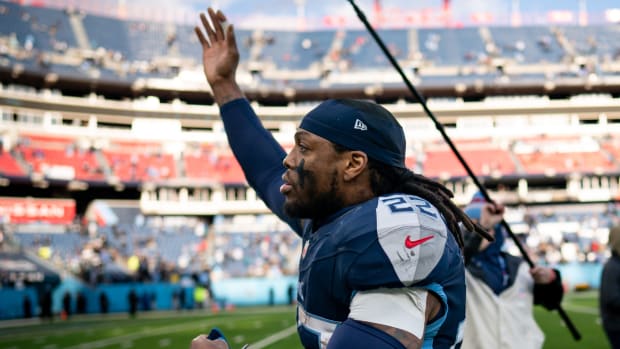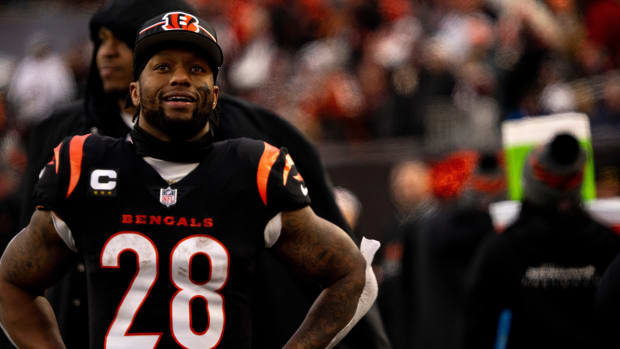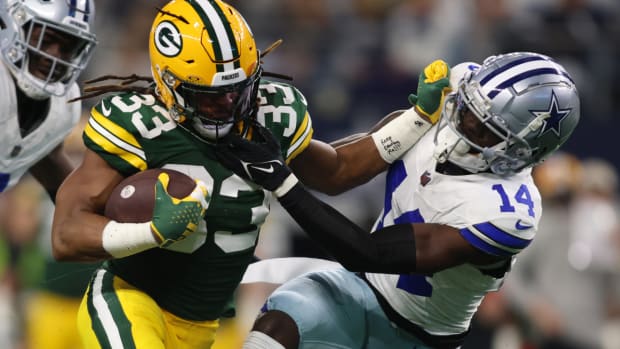A look at the legal hurdles of potential FanDuel-DraftKings merger
Your teams. Your favorite writers. Wherever you want them. Personalize SI with our new App. Install on iOS or Android.
According to Bloomberg and other media sources, FanDuel and DraftKings are in talks to merge. Together, the rival companies control about 95% of the daily fantasy sports marketplace in North America. The two companies’ DFS games are mostly similar and operate within the same relatively narrow DFS marketplace. The companies also attract comparable consumers, who tend to be males between the ages of 25 and 35 years old with disposable incomes, and both companies have struck functionally similar endorsement deals with professional sports leagues and other key stakeholders in professional sports. Consequently, a merger between FanDuel and DraftKings would bring together structurally alike businesses.
To be sure, a merged FanDuel-DraftKings company would serve as dispiriting news for some employees at both places. A merger would likely cost jobs, as certain positions at each company would become redundant. A typical reason for two companies to merge is to streamline business operations and thus reduce payroll and accompanying benefit and retirement obligations.
Another reason for FanDuel and DraftKings to merge is that they are mostly joined together in their ongoing legal battle in states that seek to prohibit or regulate DFS as unlawful gambling. Likewise, the two companies are mostly aligned in lobbying efforts in Congress, which recently held a hearing on the legality of DFS and sports betting. A merger would make those legal and lobbying efforts more efficient.
Legal hurdles with a merger
While a merger between FanDuel and DraftKings would offer certain business advantages, it could also raise concerns from a legal standpoint. The most relevant area of law implicated by a merger would be antitrust law. This is the area of law that regulates competition between businesses and ensures consumers are not adversely impacted by anti-competitive business behavior on the part of competitors. Generally, antitrust law is skeptical of coordinated commercial activity by competing businesses if that coordination is likely to raise prices or diminish the degree of innovation normally found when competitors are forced to compete.
Analyzing the O.J. Simpson trial before ESPN 30 for 30
Here, antitrust concerns might be raised if a merger would be poised to trigger higher prices for DFS players. FanDuel and DraftKings presently compete to attract often the same consumers and this competition has likely impacted how DFS players are paid out, the availability of free contests, the presence of beginner contests and various other ways these two companies compete.
Antitrust concerns are also raised when a proposed merger would stifle the incentive to innovate. One of the many reasons why FanDuel and DraftKings have succeeded is that both are conscious of, and responsive to, the other. A new game offered by FanDuel, for instance, makes it likely that archrival DraftKings will engineer their own new game, and FanDuel will then poised to innovate its new game or design yet another new one. This competition is healthy and advantageous for consumers, who, because of it, are frequently able to choose from multiple new games.
Antitrust law would also be implicated by a less competitive, and perhaps less dynamic, DFS marketplace. If FanDuel and DraftKings merge, DFS players would only be able to play DFS with one very large company—the merged FanDuel and DraftKings—or with several comparatively tiny DFS companies. Those other DFS companies, which already struggle to compete with FanDuel and DraftKings, may find competing with one company that controls 95% of the DFS marketplace untenable and thus drop out of the marketplace altogether. The presence of one “giant” DFS company could also adversely impact plans by potential startup DFS companies. These companies may face a more difficult time attracting private equity and venture capital financing if investors don’t see a viable path to competing with a merged FanDuel-DraftKings.
What action will the NFL take after the hack of its Twitter account?
Two federal antitrust laws are of particular relevance to the possible merger between FanDuel and DraftKings: the Sherman Antitrust Act and the Hart-Scott-Rodino Act. The Justice Department and the Federal Trade Commission enforce these laws. Generally, Section 1 of the Sherman Act forbids competing businesses from conspiring in ways that are more anti-competitive than pro-competitive and Section 2 prohibits both unlawful monopolies and conspiracies to form unlawful monopolies. For its part, the Hart-Scott-Rodino Act focuses on the governmental approval process for large-scale proposed mergers.
These laws empower the Justice Department and FTC to block or slow a proposed merger. These consequences sometimes arise when a proposed merger would substantially lessen competition or when investors and officers object to the proposed merger as failing to adhere to company rules. FanDuel and DraftKings would be wise to avoid “gun-jumping,” a term that antitrust regulators use to describe two merging companies that began to coordinate prior to the completion of their merger. If FanDuel and DraftKings start aligning prices prior to a merger, for example, that would be a mistake since Section 1 of the Sherman Act generally forbids competitors from price alignment.
New amicus briefs try to show Tom Brady's case is relevant beyond NFL
In addition to antitrust law, the proposed merger between FanDuel and DraftKings could also lead to questions by lawmakers who are debating the legality of DFS under their respective states’ laws. In New York, for example, proposed legislation is currently being debated that would legalize and regulate DFS in the state. Legislators might now inquire as to how a merged company would impact New York consumers. As part of an agreement with New York Attorney General Eric Schneiderman, FanDuel and DraftKings have suspended operations in New York in hopes of lobbying passage of a bill that would legalize DFS in New York. The agreement, however, is set to expire on June 30, meaning not much time remains for a legislative solution. FanDuel, DraftKings and Schneiderman would presumably resume their litigation in the absence of a legislative solution. Talk of a merger could add an unneeded curveball for the two leading DFS companies. It will be interesting to see how this all plays out.
Michael McCann is a legal analyst and writer for Sports Illustrated. He is also a Massachusetts attorney and the founding director of the Sports and Entertainment Law Institute at the University of New Hampshire School of Law. McCann also created and teaches the Deflategate undergraduate course at UNH. He serves on the Board of Advisors to the Harvard Law School Systemic Justice Project and is the distinguished visiting Hall of Fame Professor of Law at Mississippi College School of Law. He is also on the faculty of the Oregon Law Summer Sports Institute.




































